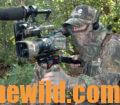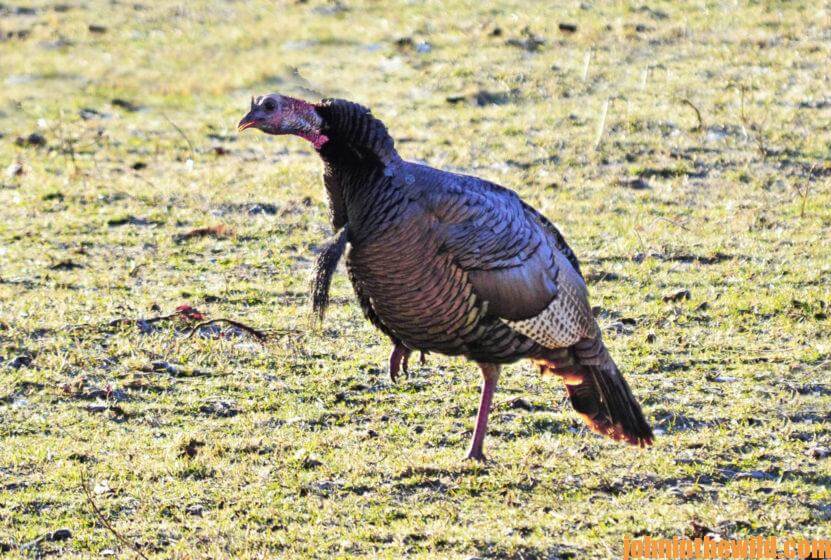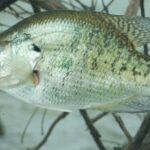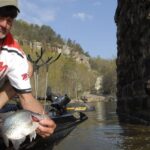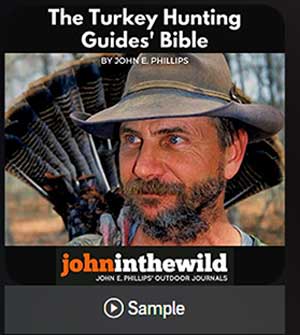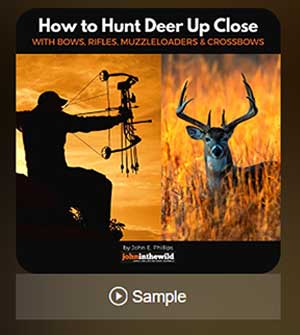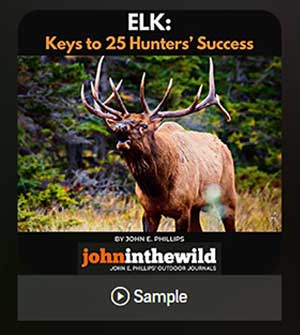Editor’s Note: When you’re looking at versatility in bowhunting, game calling and wildlife videography, Harrison, Arkansas, resident Phillip Vanderpool has done it all. With over 40+ years of hunting experience, Vanderpool is the complete hunting/videography package. After hunting turkeys since childhood with a shotgun, Phillip decided to try the ultimate challenge – bowhunting the wild turkey – and has taken about three dozen turkeys with his bow and has captured some of his turkey bowhunts on videotape. Vanderpool also is in high demand as a seminar speaker.
Festus, the public-land tom, punished me before he taught me. I hunted him on and off for many days during the season. Festus was another one of those gobblers that had been schooled on public-land hunters. In Arkansas where I live, we have an abundance of public land to hunt. This ole bird had learned that he could gobble in the morning, and if he heard 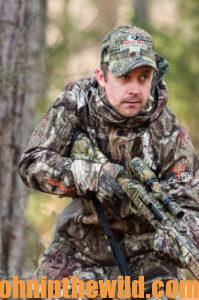 hens calling to him, he’d fly down from his roost and walk to within 80 to 100 yards of where he’d heard the hens calling. Then he’d stop, gobble, strut and wait on the hens to come to him. If the hens didn’t show up when Festus thought they should, he’d quit gobbling and walk back in the direction from which he’d come. Festus would do everything you’d want a turkey gobbler to do except come within gun range.
hens calling to him, he’d fly down from his roost and walk to within 80 to 100 yards of where he’d heard the hens calling. Then he’d stop, gobble, strut and wait on the hens to come to him. If the hens didn’t show up when Festus thought they should, he’d quit gobbling and walk back in the direction from which he’d come. Festus would do everything you’d want a turkey gobbler to do except come within gun range.
I hunted ole Festus several times within a two-week period, and he was driving me nuts. Finally, I decided that I was making the same mistake that every other turkey hunter had made that tried to take Festus. I also realized I was hunting Festus at the same time everyone else was hunting him – early in the morning. In Arkansas, we could hunt turkeys all day long. Finally I determined that I wouldn’t return to the place where I expected to find Festus until 4:00 pm one day.
Something I’ve learned about public-land gobblers is that they don’t often like to hear a lot of hens talking. These toms generally prefer quiet, subtle calling to loud, aggressive calling. Too, public-land gobblers aren’t in a hurry to get with a hen or get shot. They usually will come in slowly and quietly. So I didn’t call too much or call too loudly when I set-up to call Festus. And, Festus came in slowly and quietly, and I took him.
Ole Festus taught me that:
* if you’re going to a gobbler on public grounds and he gobbles a few times in the morning but doesn’t come to your calling, leave that turkey. Go, and find another turkey to hunt. You already know where that first bird is, and where he’s roosting and feeding. Therefore, come back, and hunt him in that same area, either later in the morning or in the afternoon. Often you’ll be much-more successful at another time.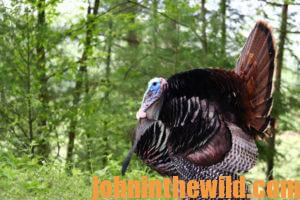
* when you’re hunting a smart gobbler on public lands, if the state you’re hunting in allows all-day hunting, hunt that tom late in the afternoon.
* if you want the best opportunity to bag a public-land turkey, hunt the last two hours of the season, whether the season ends at 12:00 noon or dark. Public-land hunters seldom will hunt those two hours, which will make your chances of taking an older gobbler much better during the last hours of the last day of turkey season than the first hours of that last day.
* if you’re hunting a public-land gobbler, remember that he’s gone to school on hunters, just like hunters go to school on turkeys. This gobbler knows what you’re planning to do probably before you do it. He’s just waiting on you to make a mistake so teach you a lesson.
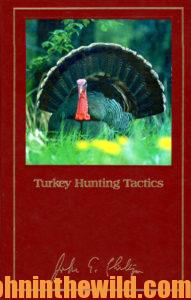 To learn more about turkey hunting, check out John E. Phillips’s book, “Turkey Hunting Tactics,” at http://amzn.to/WkbUE9, and available in Kindle, print and Audible versions.
To learn more about turkey hunting, check out John E. Phillips’s book, “Turkey Hunting Tactics,” at http://amzn.to/WkbUE9, and available in Kindle, print and Audible versions.
Tomorrow: What Are Five of Phillip Vanderpool’s Frequently Asked Seminar Questions


